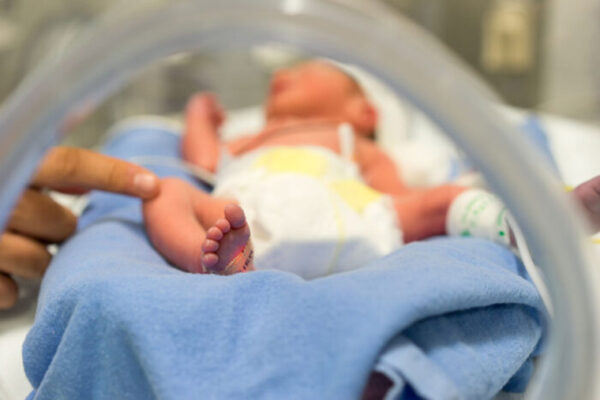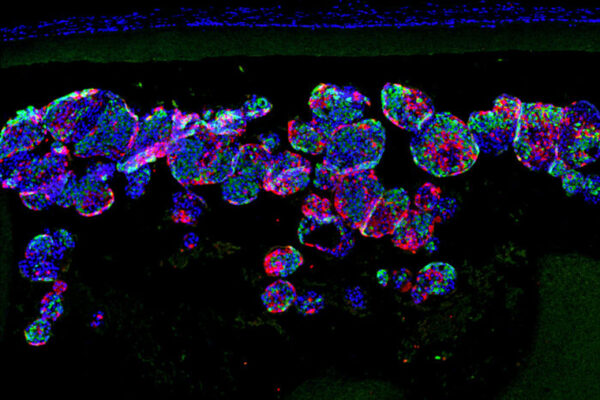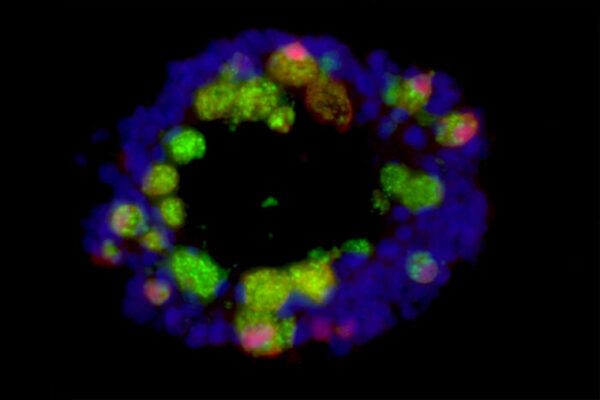Iannotti speaks during UN nutrition event
Lora Iannotti, associate professor at the Brown School and an expert on maternal and child nutrition, spoke during a panel discussion in June about the launch of the UN Nutrition discussion paper on livestock-derived foods and sustainable healthy diets.
Immune system protein may defend against deadly intestinal disease in babies
A study led by researchers at Washington University School of Medicine has identified a protein in the immune system that may protect babies from necrotizing enterocolitis, a leading cause of death among premature infants.
Tiny implant cures diabetes in mice without triggering immune response
Researchers at Washington University School of Medicine and Cornell University have implanted insulin-secreting cells into diabetic mice to normalize their blood sugar.
Western diet may increase risk of gut inflammation, infection
Eating a Western diet impairs the gut’s immune system in ways that could increase risk of infection and inflammatory bowel disease, according to a study from the Washington University School of Medicine and Cleveland Clinic.
Gordon study on childhood malnutrition honored for its impact
The Clinical Research Forum, a nonprofit association of top clinical research experts from the nation’s leading academic health centers, has awarded an international interdisciplinary team led by Jeffrey I. Gordon, MD, a Distinguished Clinical Research Achievement Award for his study “Integrating Global Health with the Microbiome.”
Alcohol problems severely undertreated
School of Medicine researchers have found that although the vast majority of people with alcohol use disorder see their doctors regularly, fewer than one in 10 ever get treatment to help curb their drinking.
Sugar-sweetened drinks linked to increased risk of colorectal cancer in women under 50
A new study led by the School of Medicine has found a link between consuming sugary drinks and an increased risk of colorectal cancer among women under 50. The findings could help explain the rising rates of colorectal cancer among younger adults.
Anti-aging compound that improves metabolic health in mice improves muscle glucose metabolism in people
In the first clinical trial of nicotinamide mononucleotide (NMN), School of Medicine researchers have found that the compound previously demonstrated to counteract aspects of aging and improve metabolic health in mice also has clinically relevant effects in people.
Gordon receives Kober Medal
Jeffrey Gordon, MD, has received the 2021 Kober Medal, one of the highest awards in academic medicine. Given by the Association of American Physicians, the honor recognizes Gordon’s extraordinary contributions to the field of gut microbiome research.
For malnourished children, a new type of microbiome-directed food boosts growth
A new study shows that a therapeutic food designed to repair the gut microbiomes of malnourished children is better than standard therapy in supporting their growth. The study was led by researchers at the School of Medicine and was published in The New England Journal of Medicine.
Older Stories









